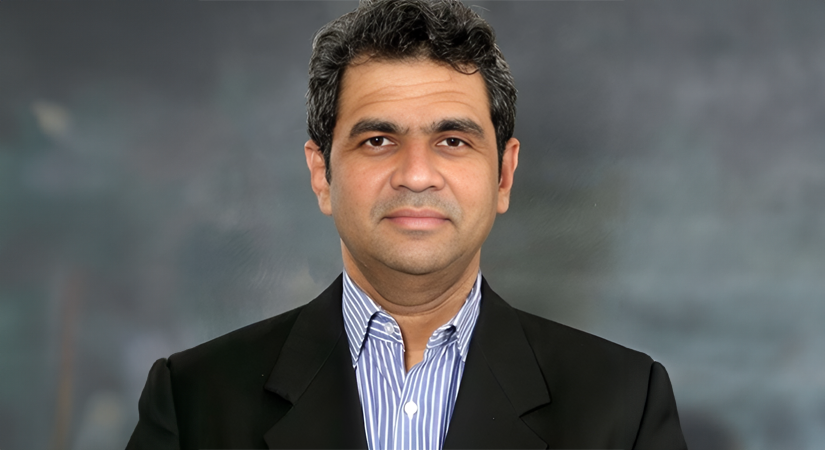Strengthening India’s Fight Against Antimicrobial Resistance: Insights from Dr. Jaideep Gogtay Of Cipla
AMR causes 1.27M deaths annually. Cipla's Dr. Gogtay stresses urgent need for surveillance, new drugs.
Breaking News
Aug 03, 2024
Simantini Singh Deo

In a pressing global health crisis, Antimicrobial Resistance
(AMR) stands as one of the most formidable challenges, responsible for an
estimated 1.27 million direct deaths and contributing to 4.95 million
fatalities worldwide in 2019 alone. The World Health Organization (WHO) has
highlighted the misuse and overuse of antimicrobials across humans, animals,
and plants as primary drivers of this alarming trend. As AMR complicates
infection treatments and elevates the risks associated with various medical procedures,
including surgeries and cancer therapies, addressing this issue has never been
more critical.
In a recent discussion with Financial Express, Dr. Jaideep
Gogtay, the Global Chief Medical Officer of Cipla, emphasized the urgent need
for enhanced surveillance and a concerted focus on drug discovery to combat AMR
effectively. Cipla is taking significant steps to contribute to this fight,
including a recent partnership with Orchid Pharma to distribute a new
antibiotic, Cefepime-Enmetazobactam, aimed at treating complicated urinary
tract infections and hospital-acquired pneumonia.
Dr. Gogtay explained that AMR primarily pertains to
bacterial infections where common antibiotics fail to work effectively. “In the
past five years, the issue of AMR has gained significant attention, especially
through publications in The Lancet, highlighting the estimated 5 million deaths
linked to resistant bacterial infections globally,” he stated. In India, the
situation is dire, with estimates suggesting that as many as 500,000 deaths
could be attributed to AMR.
While the overuse and misuse of antibiotics are
well-documented contributors, Dr. Gogtay pointed out that the issue extends
beyond human medicine. “Antibiotics are also extensively used in the veterinary
and food industries, and we must consider these factors holistically to address
AMR effectively,” he said.
Dr. Gogtay underscored the importance of a comprehensive
“One Health” approach, which recognizes the interconnectedness of human,
animal, and environmental health. “For effective solutions, all stakeholders
must collaborate to monitor antibiotic availability and usage,” he remarked.
This includes tracking antibiotic use in livestock and enhancing data
collection on resistance trends across different sectors.
India is recognized as one of the highest contributors to
AMR, particularly in hospital settings. Dr. Gogtay highlighted findings from
the Indian Council of Medical Research (ICMR), which indicate significant drug
resistance in various infections tracked across multiple tertiary hospitals.
“AMR is a significant public health challenge in India, with hospital-acquired
infections showing alarming resistance patterns,” he added.
With the increasing ineffectiveness of existing antibiotics,
the healthcare system may soon face the dire consequences of AMR, including
higher mortality rates and extended hospital stays. Dr. Gogtay noted that
patients with resistant infections often require advanced treatments that may
not be readily available, thereby increasing the risk of death.
To mitigate the impact of AMR, pharmaceutical companies like
Cipla are implementing antimicrobial stewardship programs that educate
healthcare providers on appropriate antibiotic use. “By formulating hospital
policies based on surveillance data, we can better understand local resistance
patterns and adapt our treatment protocols accordingly,” Dr. Gogtay explained.
However, the pharmaceutical industry faces challenges in
antibiotic development, primarily due to the low commercial viability of new
antibiotics. “The pace of antibiotic development has slowed down significantly.
Many companies prioritize lucrative cancer drugs over antibiotics, leading to a
scarcity of new treatments,” he lamented.
Dr. Gogtay called for greater collaboration among
pharmaceutical companies, academia, and government bodies to stimulate
antibiotic research and development. “We must explore new avenues for drug
discovery in India, focusing on antibiotics tailored to address the unique
resistance patterns prevalent in our country,” he emphasized.
The Cipla-Orchid Pharma partnership exemplifies this
commitment, aiming to address the critical need for effective treatments
against resistant pathogens. Dr. Gogtay explained that the newly developed
Enmetazobactam, combined with Cefepime, targets ESBL-Gram negative organisms
responsible for common infections that have increasingly become resistant to
standard treatments.
Looking ahead, Dr. Gogtay highlighted several critical areas
where action is needed to combat AMR effectively. Key recommendations include
expanding surveillance efforts to gather comprehensive data on pathogens and
resistance mechanisms, thereby guiding antibiotic development efforts. “The
ICMR’s nationwide surveillance initiative is a positive step, but we must
extend our reach to community-level monitoring as well,” he noted.
Additionally, Dr. Gogtay emphasized the need for incentives
that encourage pharmaceutical companies to invest in antibiotic research and
development, stating, “By providing grants and support, we can encourage
companies to engage in this essential work.”
As the threat of AMR looms large, the collaborative efforts
of stakeholders across healthcare, industry, and government are crucial in
mitigating its impact. With Cipla’s commitment to antimicrobial stewardship and
innovative partnerships, the path toward combating AMR in India appears
promising. Dr. Gogtay’s insights serve as a clarion call for comprehensive
action in addressing this silent pandemic, ensuring a healthier future for all.
